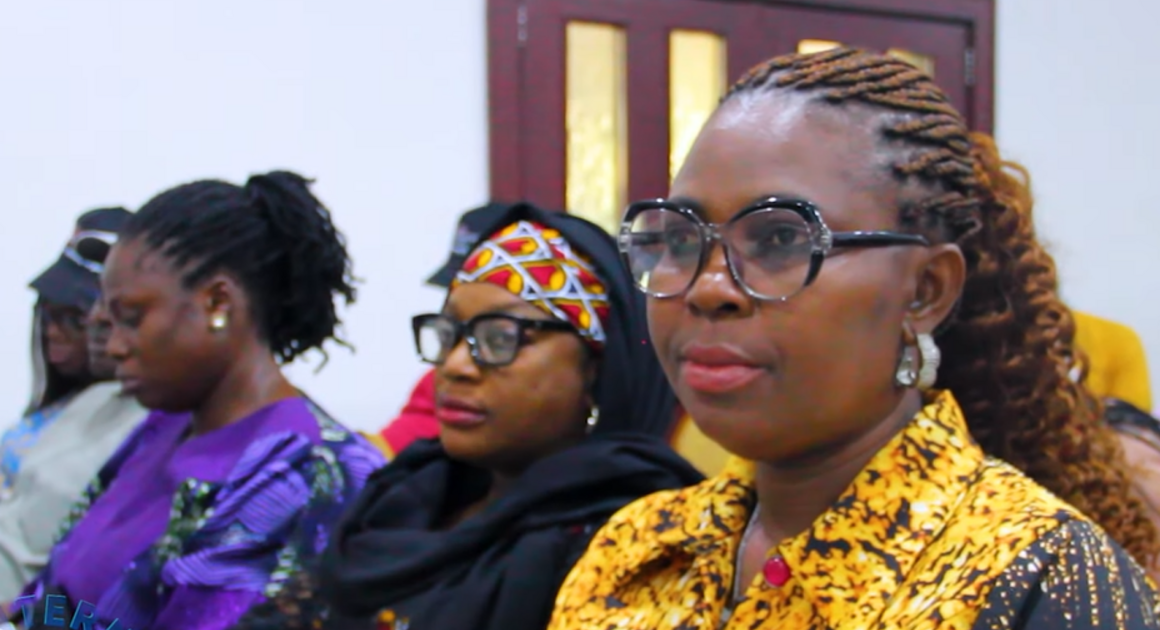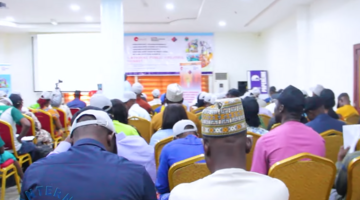-
Tags (11)
- Kenya
- Nigeria
- Uganda
- Union of Kenya Civil Servants
- National Union of Electricity Employees of Nigeria
- PSI
- Amalgamated Union of Public Corporations, Civil Service Technical and Recreational Services Employees
- Africa & Arab Countries
- English-speaking Central, East and West Africa
- DGB Bildungswerk
- Utilities
DGB project Unions and Civil Society Demand Immediate Reversal of all Exisiting Privatisation in Nigeria, Kenya and Uganda

Trade unions and civil society organizations gathered in Abuja on 29 October to challenge the privatisation of essential services and champion a people-centered alternative. The Value Chains 2025 National Public Utilities Summit, hosted by PSI in partnership with DGB Bildungswerk Bund (DGB), brought together voices from Nigeria, Kenya, and Uganda to demand urgent action.
- Read this in:
- en

Comms
Trade unions and civil society organisations have demanded the immediate reversal of all privatisations in electricity, water and waste sectors, and an urgent halt to all ongoing or planned negotiations with the World Bank and other IFIs on further privatisation of public assets.
Under the theme "Promoting Transparency and Decent Work in Supply Chains in Electricity, Water, and Waste Services in Sub-Saharan Africa," the event highlighted the failures of privatisation and the promise of Public-Public Partnerships (PUPs).
The summit served as a vital platform to assess the ongoing impact of the PSI-DGB BW project - Phase II of efforts to foster decent work and resist the sell-off of public assets. Participants, including frontline workers, advocates, and community leaders, shared stories of how privatisation has eroded access to reliable electricity, clean water, and waste management, leaving communities vulnerable and workers exploited.
Video
Trade unions and civil society organizations gathered in Abuja on 29 October to challenge the privatisation of essential services and champion a people-centered alternative. The Value Chains 2025 National Public Utilities Summit, hosted by PSI in partnership with DGB Bildungswerk Bund (DGB), brought together voices from Nigeria, Kenya, and Uganda to demand urgent action.
Public to Public Model: Stakeholders call for reversal of privatisation in Nigeria's utility sector
A Unified Call to Action
At the close of the one-day gathering, stakeholders issued a resounding communique, outlining clear demands to reclaim public control over vital services. Key calls included:
Immediate Reversal of Privatizations: Roll back all existing privatizations in the electricity sector, as well as those in water and waste management, which have prioritized profits over people.
Halt External Influences: Suspend ongoing or planned discussions with the World Bank and other International Financial Institutions (IFIs) that push for further privatization of public assets.
Embrace Public-Public Partnerships (PUPs): Adopt PUPs as a proven, democratic model that delivers quality services without the profit motive. As one participant noted, "PUPs put public interest first, fostering collaboration between public entities to build resilient systems."
Invest in People: Governments must prioritize human capital by allocating resources for training, motivation, and retention of public sector workers—driving efficiency, innovation, and transparency.
Strengthen Social Dialogue: Build robust collaborations among trade unions, civil society, and other stakeholders to hold governments accountable and ensure equitable development.
The communique emphasized a core principle: "Put people over profit." By halting privatisation and reinforcing the public sector as the foundation of democratic progress, equity, and sustainable livelihoods, African nations can safeguard essential services for generations to come.
Representatives from Nigerian unions like the Amalgamated Union of Public Corporations Civil Service Technical and Recreational Services Employees (AUPCTRE) and the National Union of Electricity Employees (NUEE) stood shoulder-to-shoulder with civil society groups such as the Renevlyn Development Initiative (RDI), Citizens Free Services Forum (CFSF), and Child Health Organisation. Their Kenyan counterparts from the Union of Kenya Civil Servants (UKCS), along with Ugandan allies, amplified regional solidarity, underscoring that these struggles transcend borders.
Video
Trade unions and Civil society organizations oppose Privatisation act
Why This Matters Now
Privatisation in Nigeria's utilities has been a cautionary tale. Since the 2013 electricity sector reforms, tariffs have skyrocketed, blackouts persist, and jobs have dwindled - leaving millions without affordable access. Similar patterns in water and waste sectors exacerbate inequality, particularly for low-income and rural communities. The summit's discussions revealed how these policies, often backed by global lenders, undermine worker rights and public accountability.
Yet, hope emerged through stories of successful PUPs elsewhere in Africa and beyond. These models demonstrate that public collaboration can enhance service delivery, create decent jobs, and promote transparency in supply chains. Participants urged PSI and DGB to expand education initiatives on PUPs, especially as this approach gains traction in Nigeria.
As Comrade Chris Okonkwo of AUPCTRE declared during the event, "The time for half-measures is over. We demand a future where public services serve the public, not private pockets."
Read More
By Mashe Umaru Gwamna Trade unions and civil societies have called for urgent reversal of electricity sector and all existing privatisations in the water, and waste sectors and suspension of ongo…
